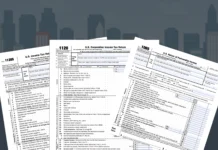Joseph Stiglitz, a professor at Columbia University and a recipient of the 2001 Nobel Memorial Prize in Economics, said the tax law in the United States that enables companies like Apple Inc. (NASDAQ:AAPL) to keep a huge cash stockpile overseas is “obviously deficient.”
Prof. Stiglitz also described Apple’s strategy of reporting a significant amount of profit to its smaller subsidiary abroad as a “fraud.”
During an interview with Tom Keen on Bloomberg Television, Prof. Stiglitz, said, “Our current tax system encourages companies to keep their money abroad, opens up a vast loophole through what is called the transfer-pricing system that allows them not only to keep their money abroad but, effectively, to escape taxation.”
U.S. tax system loophole
Based on Apple’s third-quarter financial results, $215 billion out of its total $232 billion in cash is held outside the United States.
The iPhone maker’s corporate structure is designed to take advantage of the existing loophole in the U.S. tax system, which allows it to transfer its taxable earnings overseas particularly in Ireland, where the corporate tax rate is 12.5%.
The U.S. Internal Revenue Service (IRS) reported that the current corporate tax rate stands at 38.9%.
According to Prof. Stiglitz, “Here we have the largest corporation in capitalization not only in America, but in the world… Claiming that most of its profits originate from about a few hundred people working in Ireland—that’s a fraud.”
He added, “A tax law that encourages American firms to keep jobs abroad is wrong, and I think we can get a consensus in America to get that changed.”
Prof. Stiglitz’s statements were in response to the question whether policymakers such as Democratic presidential nominee Hillary Clinton and Senator Elizabeth Warren could develop a plan that would encourage companies to bring their cash stockpile overseas back to the United States.
Apple CEO pushed for changes in the U.S. corporate tax code
Apple repeatedly denied allegations that it was using a tax scheme to avoid paying taxes. Earlier this year, the European Commission launched an investigation on its tax strategy known as “Double Irish” to determine whether its tax deals with Ireland are considered illegal. The iPhone maker negotiated a special tax corporate tax of less than 2% in Ireland.
In a previous interview with CBS Corporation’s 60 Minutes, Apple CEO Tim Cook called the criticisms against the company as “political crap” and emphasized that a tax reform is necessary because the U.S. tax system is outdated.
In 2013, Cook testified in the U.S. Senate that Apple “does not use tax gimmicks, and 35% corporate tax rate “severely discourages repatriating funds.” He also advocated for the elimination of all tax expenditures, reduction of corporate income-tax rates, and the implementation of a reasonable tax on foreign earnings that allows the free flow of capital back to the United States.









